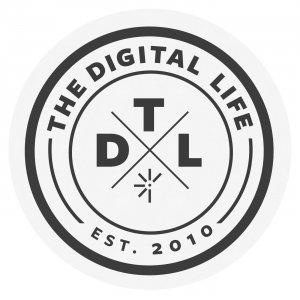The Digital Life

Apple vs. FBI
Jon: Welcome to episode 144 of The Digital Life, a show about our ventures in the world of design and technology. I'm your host, Jon Follett, and with me is founder and cohost, Dirk Knemeyer.
Dirk: Greetings, Jon.
Jon: So, for our topic today, I'd like to discuss privacy, security, and the hubbub around the FBI request of Apple to unlock an iPhone that was owned by one of the San Bernardino shooters and, of course, Apple's refusal at least so far, to do so.
Dirk: That story has certainly been pinned to the top of the news sites for the last couple of weeks.
Jon: I think it's probably worth starting with the context of this request from the FBI because it comes on the heels of, I think, some growing dissatisfaction with governmental interference with privacy issues and security issues. Historically, we know that the government has used and misused data of its citizens in the past. The FBI has a- let's just say a tumultuous history when it comes to that, going all the way back to J. Edgar Hoover. In recent memory, we have the NSA revelations by Snowden, essentially revealing that we're more or less in a surveillance state and to make matters worse we're even surveilling our allies, our supposed friends. And their ...
Dirk: All the big nations are doing that though. Let's not act like that's some weirdness here in the United States.
Jon: But this is, of course, the landscape of the FBI request which is a public request, so we're aware of it because it's big news but it's certainly not in a vacuum. This position by Apple is certainly related, at least, to the environment that the request comes in. I think that gives us some initial grounding at least. Last week, Apple CEO, Tim Cook says that the FBI order would force the company to build a back door to the iPhone and that no reasonable person would find this acceptable. This is his stake in the ground. He's sort of drawing the line and that's where Apple stands. Soon after that, you have Google CEO siding with Apple and basically saying that getting into the phone would sabotage the security of tens of millions of American citizens.
On the opposite side, in the social media ecosphere, you have presidential candidates weighing in because it is an election year, for further context of this argument so grandstanding is encouraged. You've got folks like Donald Trump calling for the boycott of Apple products. Ironically, the guy is- or maybe un-ironically, the guy is tweeting on his iPhone as he's calling for the Apple boycott.
At a certain point, there's an additional motion filed that's going to force Apple to comply and in the document it says that Apple should not be allowed to design and market its products to allow technology, rather than the law, to allow access to data. This is made to be a critical stand now, that Apple should not be allowed to block access when the law says that it should.
In that environment, in that exchange there, what do you see developing, Dirk, just in terms of the positions that big companies are taking now, in regards to privacy of data? Where does the consumer end up in all of this because I'm not sure- the cynic in me wants to say that it really doesn't matter what's happening in this surface argument, albeit sort of a big deal right now. But, my general feeling is that privacy is sliding out from under us, kind of like a mudslide at this point. What's your take on it?
Dirk: Well, I think it has slid and I think our cliff house has shattered down on the rocks already so, I think it's over. It's done. The sliding, where to stop, it's all done. Look, this is a PR thing. Apple and Google, all of these big technology companies give scads of data to the government as it is now. Scads of it. So, it's not as if that's not already happening but now Apple is going to keep it from happening. No, it's happening constantly, constantly, the request for information and information being given.
At a certain level,






 Visit Podcast Website
Visit Podcast Website RSS Podcast Feed
RSS Podcast Feed Subscribe
Subscribe
 Add to MyCast
Add to MyCast